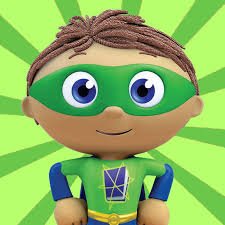Here are 12 Lessons from Khaled Hosseini\'s book \"The Kite Runner\":
1. The Power of Unbreakable Bonds: Amidst the turmoil of Afghanistan\'s shifting political landscape, the unwavering friendship between Amir and Hassan transcends social differences and childhood innocence, offering a poignant lesson in loyalty and unconditional love.
2. The Scars of Betrayal: Amir\'s devastating betrayal of Hassan\'s trust has lasting consequences, etching a deep scar on their friendship and haunting him with guilt and shame. This serves as a powerful reminder of the profound impact of our actions and the importance of taking responsibility for them.
3. Facing the Past for Redemption: Years later, haunted by his past, Amir embarks on a perilous journey to seek redemption, venturing back to war-torn Afghanistan to rescue Hassan\'s son Sohrab. This illustrates the potential for healing and finding peace through confronting one\'s demons and actively seeking forgiveness.
4. The Unbreakable Spirit of Hope: Despite the bleakness of war and oppression, the novel is illuminated by glimmers of hope and resilience. Sohrab\'s journey from trauma to finding solace in art teaches us about the enduring human spirit and the transformative power of hope and compassion.
5. The Legacy of Fathers and Sons: The complex relationship between Baba and Amir explores themes of parental expectations, unfulfilled dreams, and the desire for validation. It also delves into the cyclical nature of father-son dynamics and the importance of breaking free from unhealthy patterns.
6. The Fragility of Innocence: The brutal realities of war and societal prejudice shatter the idyllic childhood world of Amir and Hassan, reminding us of the fragility of innocence and the devastating impact of violence and discrimination on young minds.
7. The Importance of Storytelling: The narrative unfolds through Amir\'s memories and reflections, highlighting the power of storytelling to shape our understanding of ourselves and others. It also emphasizes the importance of facing our past and owning our own narratives.
8. The Cycle of Violence and Forgiveness: The novel explores the destructive cycle of violence and revenge, prompting readers to consider the ripple effects of past injustices and the potential for breaking free through forgiveness and compassion.
9. The Power of Choice: Despite facing difficult circumstances and societal pressures, the characters are presented with choices that define their paths. This underlines the importance of individual agency and the responsibility we hold for our own actions and decisions.
10. The Search for Identity: Both Amir and Sohrab grapple with questions of identity, grappling with their past traumas and societal expectations. The novel emphasizes the ongoing process of self-discovery and the importance of accepting and embracing who we truly are.
11. The Enduring Power of Love: Although marred by betrayal and loss, the story ultimately transcends societal divisions and celebrates the enduring power of love, loyalty, and compassion.
12. Finding Meaning in Suffering: Through Amir\'s journey of redemption and Sohrab\'s path to healing, The Kite Runner suggests that even the darkest experiences can hold the potential for growth and finding meaning in suffering.
These are just some of the profound lessons that can be gleaned from Khaled Hosseini\'s powerful and enduring novel. The Kite Runner offers a haunting yet hopeful reminder of the human capacity for love, resilience, and redemption in the face of unimaginable adversity.




















 Apr 30, 2025
Apr 30, 2025



.jpg)




.jpg)



.jpg)
.jpeg)









.jpeg)




.jpg)


.png)




.jpg)



.jpg)





.jpg)



.jpg)









.jpeg)




.jpeg)



.jpeg)



